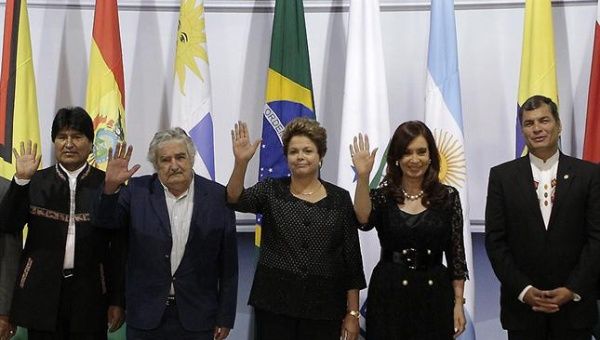[fblike]
 For the past decade and a half, leftist politicians in Latin America were elected at a higher rate than their conservative counterparts. These leftist leaders, which included Venezuela’s Hugo Chavez, Brazil’s Luiz Ignacio Lula da Silva, Bolivia’s Evo Morales, and Argentina’s Cristina Fernandez de Kirchner, all campaigned on promises of enlarging the welfare structures of their respective states and some, including Chavez and Morales, made moves to nationalize elements of the national economy to better distribute resource wealth to their people. However, falling global demand for commodities, in addition to corruption scandals and poor policy decisions, have created a gradual backlash against leftist leaders in the region. Whereas once it was great to rail against “neoliberal” economic policies and American influence, voters in Latin America have begun to give free market, conservative leaders an audience due to economic downturns, anxieties about the fiscal soundness of some Latin American nations, and shortages of vital consumer goods (notably in Venezuela).
For the past decade and a half, leftist politicians in Latin America were elected at a higher rate than their conservative counterparts. These leftist leaders, which included Venezuela’s Hugo Chavez, Brazil’s Luiz Ignacio Lula da Silva, Bolivia’s Evo Morales, and Argentina’s Cristina Fernandez de Kirchner, all campaigned on promises of enlarging the welfare structures of their respective states and some, including Chavez and Morales, made moves to nationalize elements of the national economy to better distribute resource wealth to their people. However, falling global demand for commodities, in addition to corruption scandals and poor policy decisions, have created a gradual backlash against leftist leaders in the region. Whereas once it was great to rail against “neoliberal” economic policies and American influence, voters in Latin America have begun to give free market, conservative leaders an audience due to economic downturns, anxieties about the fiscal soundness of some Latin American nations, and shortages of vital consumer goods (notably in Venezuela).
This topic brief will provide important vocabulary when discussing the fall of leftist ideologies in Latin America, explain some reasons why leftist politicians had appeal to voters in Latin America until recently, and analyze why conservative politicians are making a comeback in the region.
Readers are also encouraged to use the links below and in the related R&D to bolster their files about this topic.




 Here is today’s premium R&D to accompany
Here is today’s premium R&D to accompany  By Sarah Anand
By Sarah Anand